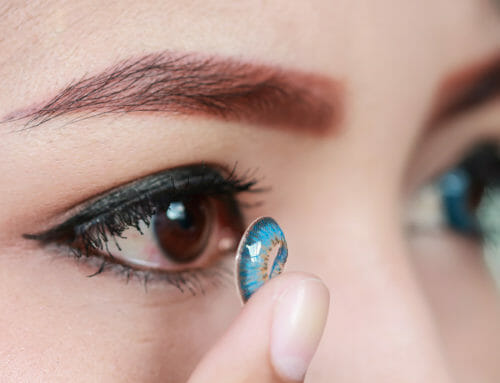How Do UV Rays Damage Your Eyes?
There are several consequences to the skin and the eyes for prolonged exposure to the sun and its ultraviolet (UV) rays. It can also make us more susceptible to certain eye problems and conditions.
As ultraviolet rays are high in energy, they cannot be seen and do not fall within the realm of visible light and overexposure to UV rays can be both harmful and problematic in the short and long-term.
The sun has three main categories of UV radiation; UVA, UVB and UVC. Fortunately, the atmosphere's ozone layer blocks the sun's UVC rays as it has the highest energy and would potentially be the most harmful to the eyes. Ultraviolet exposure is greater at higher altitudes or in open spaces and highly reflective surfaces, like snow and sand, can cause UV exposure to double.
Increased exposure to UVB rays can cause permanent damage to the cornea. In low doses, UVB radiation stimulates the production of melanin. In higher doses, UVB rays may cause sunburn and increase the risk of skin or eyelid cancer.
UVA rays are closer to visible light rays and have lower energy than UVB and UVC rays. UVA rays can still pass through the cornea and reach the lens and retina inside the eye and overexposure to UVA rays may cause damage to the retina. It has been linked to the development of cataracts and macular degeneration.
Spending an excessive amount of time outdoors in a sunny environment without the correct eye protection may lead to an eye condition called photokeratitis, also known as 'snow blindness'. A painful eye condition likened to having sunburn of the eye surface. The symptoms of this condition could include blurred vision, eye redness, increased light sensitivity, and tearing. The effects of this condition are usually temporary and cold compresses or artificial tears may help to ease discomfort.
Overexposure to UVB has been associated with a number of eye problems including pingueculas and pterygia. A pinguecula is a benign growth that forms on the conjunctiva and a pterygium is an overgrowth of tissue that covers the eyeball reducing vision. Certain medications have also been linked to increasing the body's sensitivity to UV radiation.
Taking simple but effective measures may also make a key difference in protecting the eyes from UV rays. Following our recommended eye care tips may help to provide added protection for your eyes.
• Wearing sunglasses that provide 100% UVA and UVB protection
• Wearing wide-brimmed hats for added shade and eye protection
• Avoiding direct exposure to midday sunlight
Ultraviolet exposure is greater when the sun is positioned higher in the sky; typically, from 10am to 4pm. Children are also just as susceptible to eye damage as adults and they may benefit from sunglasses or photochromic lenses. Photochromic lenses automatically adjust in proportion to the intensity of the light.
It is important to book regular eye examinations with your ophthalmologist to ensure your eyes are healthy and they can give you tailored advice on eye protection.

About the expert
Mr Hamada | Consultant Ophthalmologist and Corneal Surgeon
MD, MSc, DO (hons), FRCSEd, FRCOphth I am Samer, founder and consultant ophthalmic surgeon with over 20 years’ experience in ophthalmology. I am a world-renowned specialist in cornea, cataract and refractive surgery. I’m not only a leading surgeon but also the only dual fellowship trained in corneal diseases in children from reputable institutions in the UK. At Eye Clinic London I work closely with other consultant ophthalmologists, optometrists and orthoptists to achieve the best outcomes for our patients. Our main aim is to make sure our patients get the safest and best treatments available to them. We put your safety before anything else so you can rest assured that if you choose us you will be in the best and safest hands.



